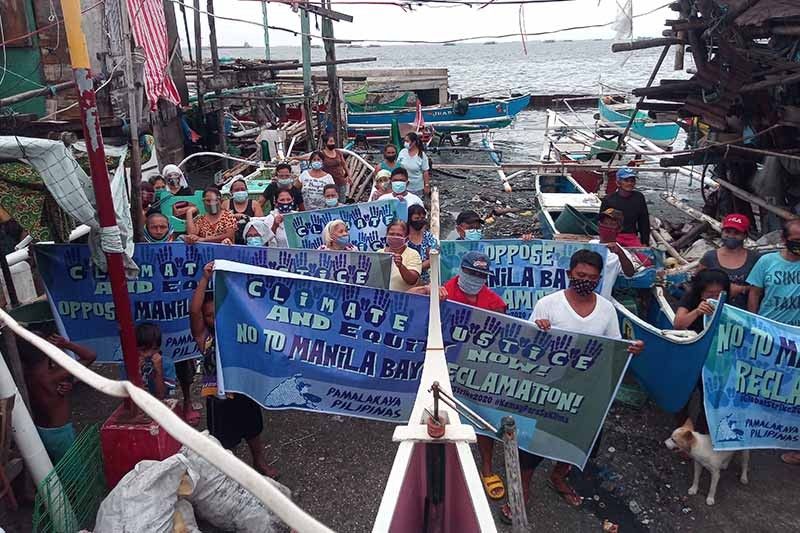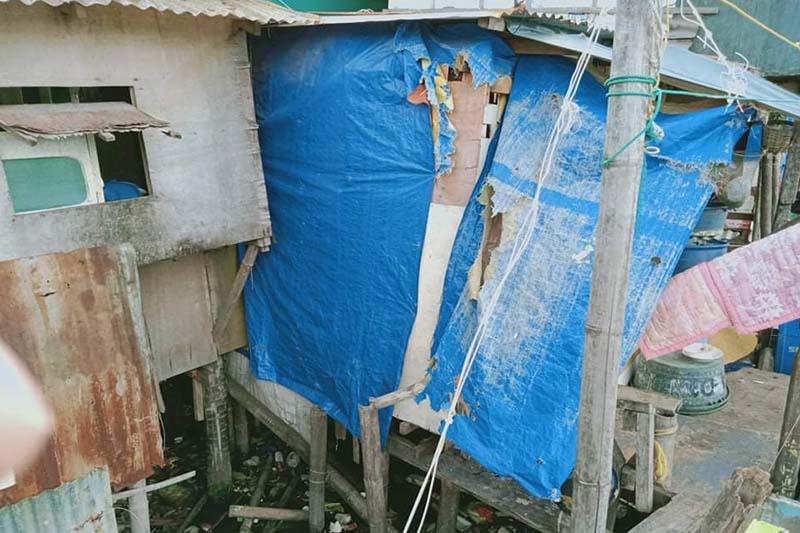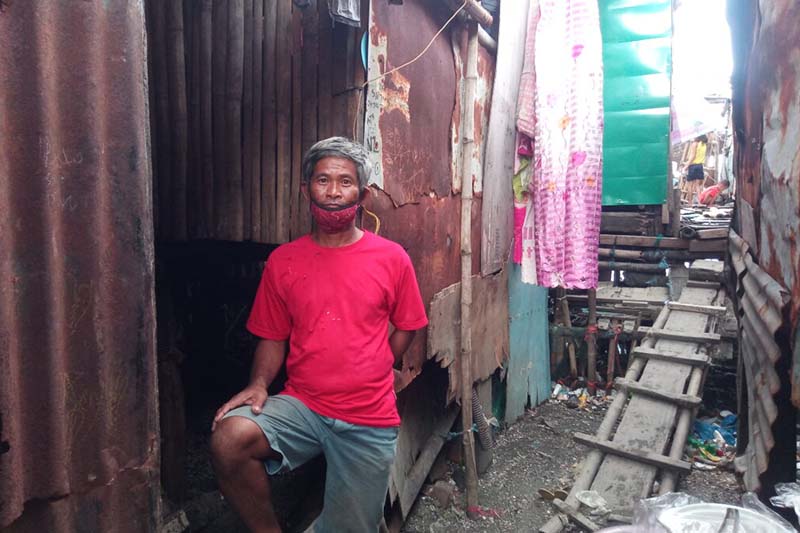Rising seas, sinking land hurt this community. Coronavirus makes it worse

MANILA, Philippines — Mary Grace Asuncion grew up living at the edge of the water. Residing in Tangos in Navotas City, facing Manila Bay in the Philippines, means she has to deal with high tide and occasional cyclones that bring garbage and grime inside her shanty.
She has grown accustomed to these circumstances. She says she would not trade them for living inland, but soon she may not have a choice: the ground where Asuncion and other communities live, in northern Metro Manila, is sinking as a consequence of rapid extraction of groundwater due to population growth and urbanization. The rate of subsidence in the area is between four and five centimeters annually, geologist Mahar Lagmay said.
“In 100 years, if the rate of subsidence is the same, then it would have gone down by five meters. If it’s in the coastal area, they will be underwater,” Lagmay said.
Subsidence is happening around the world. New Orleans is subsiding around 6 millimeters, while West Netherlands is sinking between 2 to 10 mm each year.
But the impact of subsidence has been greater in Southeast Asian megacities. Jakarta has lowered four meters over the past 30 years, Bangkok has been sinking around 20 to 30 mm annually and Ho Chi Minh City up to 80 mm.
Impacts of sinking ground, such as flooding, result in economic losses totalling billions of dollars annually as it affects buildings and infrastructure.
Climate change exacerbates the problem: the sea level rises by about three to five millimeters a year, Lagmay said.
A study by New Jersey-based Climate Central found that 6.8 million Filipinos live on land—including the densely populated Metro Manila—that will likely be inundated by 2050. By the end of the century, waters will threaten to consume land currently occupied by 8.6 million people.
Rising seas will be felt most in China, Bangladesh, India, Vietnam, Indonesia and Thailand and many Small Island Developing States, the study also found.

Potential hotbed
Rising seas are not the only climate concern for Asuncion and her neighbors. The rainy season in the Philippines began in June, and residents of Tangos were lucky that there was no instance when they were forced to flee their homes in the middle of a pandemic. However, weather forecasters project that La Niña will bring excessive rain and more cyclones until the first quarter of 2021.
Evacuation centers are feared to become coronavirus hotbeds.
“The people who are expected to evacuate are those who are probably in a bad position to address the circumstances even without the pandemic,” said Rex Barrer, transition advisor of Institute for Climate and Sustainable Cities.
Vonne Villanueva, the city’s disaster officer, assured they have a plan to protect residents from disasters and the virus. He said medical teams will be deployed and families will stay in partition tents in temporary shelters.
“If the situation’s manageable, we’ll stay. If ever we evacuate, fear will be there but the only thing we can do is practice health precautions,” Asuncion said.

Coast is where home is
The city has designated relocation sites for residents living in hazardous areas. But leaving the coast is the last thing on the minds of Asuncion and Romeo Broqueza, a 52-year-old fisherman. Because moving somewhere safer means losing their families’ source of livelihood—fishing. The only available jobs for non-degree holders inland are in factories and construction sites.
After all, they have adapted to monitoring the water level, fleeing their homes, if necessary, and cleaning up once the waters recede.
“Fishing is our lifeblood. If we move there, we’ll die like fish,” Broqueza said.
Relocating people far from the coast needs to be holistic and requires an effective communication plan and implementation, Barrer said.
“How do we move people in such a way that we also address issues of livelihood and education? All these things should be considered. It’s not just a matter of taking out a community from an area that is already threatened,” he said.
So for Asuncion, unless the government provides them better sources of income, her family is not leaving.
“We’ll stay here even though it’s difficult because our lives depend on the sea.”
To mitigate the impacts of rising seas, the city built a dike and is mulling to plant mangroves. But for Lagmay, the long-term solution is to “monitor the extraction of groundwater very well.”
New layer of hardship
Life has always been difficult for the fishing communities in Tangos, but more since the coronavirus pandemic took hold in the area, seven months ago. The disease is a different enemy, plunging them deeper into poverty. The health crisis is an “added layer of difficulty,” Barrer said.
Asuncion earns money by selling the fish catch of her husband. But the spread of COVID-19 made it tough for fishermen due to movement restrictions.
“Ever since the pandemic began, we’ve been struggling to make ends meet. Where will we get the money to feed us especially now that our daughter is set to resume schooling?” she said.
Before the pandemic struck, fishers could venture on the waters of neighboring provinces and earn at least P300 a day. If they were lucky, they could bring home P700. At present, they only earn around P150.
“We’re only allowed to fish on the waters of our city now. This health crisis brought us so much loss,” Broqueza said.
This story was originally published on Climate Tracker
- Latest
- Trending




























